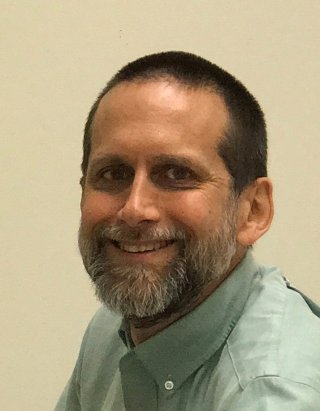Meet EPA Researcher Jim Jetter, PE

EPA researcher Jim Jetter works with a research team to study air pollutant emissions and fuel efficiency for cooking technologies and fuels used around the world as part of an international initiative with other US government agencies, the Clean Cooking Alliance, and other partners. Right now, Jim leads the development of international standards for laboratory evaluations of clean cooking alternatives.
Tell us about your background.
I have a bachelor’s in mechanical engineering from North Carolina State University and a master’s in environmental engineering from the University of North Carolina at Chapel Hill. I’m also a licensed Professional Engineer (PE).
When did you first know you wanted to work in environmental science?
In college, I developed a strong interest in the science of energy efficiency.
What do you like most about your job?
I love working with a team of excellent people and having the autonomy to explore things that may help to protect human health and the environment.
How does your science matter?
We’re working on a challenging issue – the World Health Organization estimates that three million people die prematurely every year due to household air pollution caused by burning solid fuels (wood, charcoal, coal, crop waste, animal dung, etc.) for cooking.
If you weren’t a scientist, what would you be doing?
If I wasn’t a scientist, I might be doing primary medical care.
What advice would you give a student interested in a career in science?
This may be well-known advice, but for any career, I would advise a student to search for that place where the following all come together: what you love, what you’re good at, what you can earn a living at, and what the world needs.
If you can have any superpower, what would you choose?
I would choose the ability to reverse entropy, along with great responsibility.
What do you think the coolest scientific discovery was and why?
The development of vaccines. They have probably saved more lives and prevented more human suffering than any other discovery.
If you could have dinner with any scientist, past or present, who would you choose and what would you talk about?
I would have dinner with Francis Collins, who led the Human Genome Project. I had the pleasure of meeting him one time at an event in Washington DC. He is an extraordinary scientist as well as a great human being! I’d love to talk with him about his views on science, medicine, and religion.
You are stranded on a desert island; how do you use science to survive?
If I was stranded and had the resources, I might try to use condensation to collect water, environmental knowledge to find food, physics to make fire, engineering to make a shelter, and electronics to signal for help.
What do you think is our biggest scientific challenge in the next 20/50/100 years?
Managing risk from multiple hazards resulting largely from rapid advancements in science, including climate change; global pandemics; nuclear, biological, and chemical weapons; genetic modification; artificial intelligence; and probably unintended consequences we don’t even know about yet.
Editor's Note: The opinions expressed herein are those of the researcher alone. EPA does not endorse the opinions or positions expressed.
